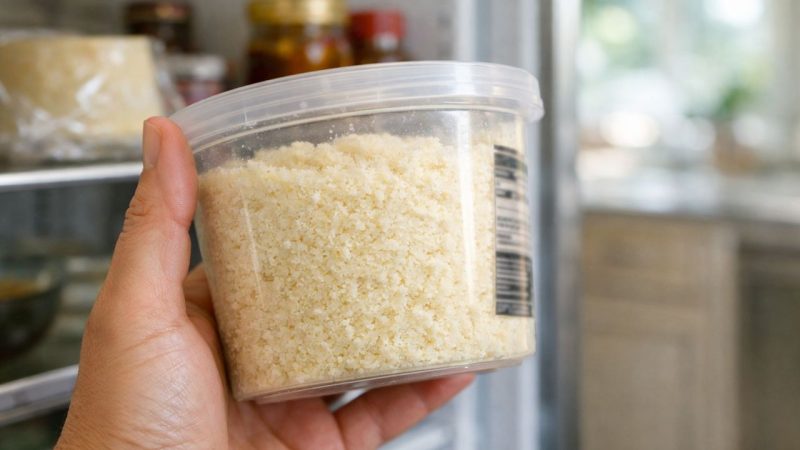Gut health: simple, science backed ways to improve it daily

TL;DR:
- Eat more plants and whole grains to reach 25 g fiber daily.
- Add fermented foods like yogurt or kimchi most days.
- Use probiotic pills only when your doctor advises.
- Sleep well, move daily, manage stress, and hydrate.
- If you have IBS, try a low FODMAP plan with a dietitian.
What “gut health” means
Your gut is home to trillions of microbes. They help digest food, make vitamins, and train your immune system. A healthy gut has many species, steady digestion, and fewer flares like gas, pain, or irregular stools. Building that health takes daily habits, not hacks.
The five big levers
Most people can improve gut health by working on five areas:
- Fiber rich foods.
- Fermented foods.
- Smart use of probiotics.
- Lifestyle habits, sleep, stress, and movement.
- Sensible medical care, like not overusing antibiotics.
1) Hit a simple fiber target
Aim for at least 25 grams of fiber per day from whole foods. That means more legumes, vegetables, fruits, nuts, seeds, and whole grains. This supports regularity, feeds helpful microbes, and produces short chain fatty acids that calm gut inflammation.
How to reach 25 grams without counting
- At lunch and dinner, make half your plate plants.
- Add one cup of beans or lentils most days.
- Swap white rice or bread for whole grain versions.
- Keep nuts or roasted chickpeas for snacks.
- Start with oatmeal, chia pudding, or whole grain dosa.
Increase fiber slowly over 1 to 2 weeks to limit gas. Drink water as you go.
2) Add fermented foods most days
Fermented foods bring live microbes and helpful metabolites. A small human trial found that a 10 week fermented foods plan increased microbiome diversity and reduced inflammatory markers. Add yogurt with live cultures, kefir, kimchi, sauerkraut, miso, tempeh, or kombucha you tolerate. Start with small servings and build up.
Fermented vs fiber
You need both. Fiber feeds your resident microbes. Fermented foods supply live cultures and compounds that may help them thrive. Pair a fiber base, like oats, with fermented yogurt, or rice with kimchi.
3) Be picky with probiotic supplements
Probiotic pills are not magic for most people. The American Gastroenterological Association does not recommend routine probiotics for most digestive conditions because evidence is limited or mixed. There are a few specific cases where certain strains may help under medical care, but most people do better investing in food and lifestyle first.
A smart way to test them
If your clinician suggests a probiotic for a clear reason, try a named strain at the dose used in studies for 4 to 8 weeks. Track symptoms. Stop if there is no benefit.
4) Prebiotics: food for your microbes
Prebiotics are compounds that your microbes use to make helpful products. Many are fibers like inulin, fructo oligosaccharides, and galacto oligosaccharides, found in onions, garlic, leeks, bananas, asparagus, oats, and legumes. Some polyphenols act like prebiotics too. The scientific community defines a prebiotic as a substrate that is selectively used by host microbes and gives a health benefit.
Easy prebiotic swaps
- Use onions, garlic, and leeks as your flavor base.
- Choose oats or barley over refined grains.
- Add a small banana or kiwi to breakfast.
- Stir chickpeas into soups and salads.
5) Sleep, stress, movement, and hydration
Your gut and brain talk all day. Poor sleep and high stress can worsen bloating, pain, and irregularity. Aim for a steady sleep schedule, daily movement, and simple stress skills like breathing drills or short walks after meals. Even 20 to 30 minutes of activity supports motility and overall health. Keep fluids steady, especially when you add fiber.
A simple daily plate that helps your gut
- Foundation: 2 cups vegetables, mixed colors.
- Protein: beans, lentils, tofu, fish, eggs, or lean poultry.
- Carbs: whole grains like brown rice, sorghum, millet, quinoa, or whole wheat roti.
- Fermented: yogurt with live cultures or a small side of kimchi or sauerkraut.
- Fats: olive oil, nuts, seeds.
- Flavor: herbs, spices, garlic, onion, ginger.
[Related: High fiber breakfast ideas → /recipes/high fiber breakfast]
[Related: Whole grain swaps across cuisines → /guides/whole grains]
What to limit or watch
- Ultra processed foods that crowd out fiber rich choices.
- Frequent sugar alcohols like sorbitol and xylitol if they bloat you.
- Large night meals that disrupt sleep.
- Alcohol, which can irritate the gut in many people.
If you have IBS or frequent symptoms
The low FODMAP diet can reduce gas, pain, and stool issues in many people with IBS. It has three steps, and it should be done with a trained dietitian to avoid missing nutrients and to re expand foods you tolerate. Do not stay on strict low FODMAP long term without guidance.
Red flags that mean see a doctor soon
- Unexplained weight loss.
- Blood in stool or black stools.
- Fever or persistent vomiting.
- Iron deficiency anemia.
- Family history of colorectal cancer or inflammatory bowel disease.
- New bowel changes after age 50.
Antibiotics and your gut
Antibiotics save lives, but they also reduce gut microbe diversity. Use them only when your clinician says you need them, and complete the course as prescribed. Do not request them for viral illnesses. If you must take them, a fiber rich diet and fermented foods can help your gut recover over time.
One week quick start checklist
Use this as a simple plan. Repeat next week and mix up your choices.
| Day | Fiber goal | Fermented food | Movement | Sleep plan |
| Mon | 1 cup beans + 2 veg | 1 cup yogurt | 30 min brisk walk | Lights out 7 to 8 hours |
| Tue | Oats + fruit + nuts | 1 small kefir | 20 min mobility + 10 min walk | Same bedtime |
| Wed | Lentil soup + salad | Kimchi 2 tbsp | 30 min cycle or dance | Screens off 60 min before |
| Thu | Whole grain bowl + veg | Miso soup | 20 min strength | Same wake time |
| Fri | Chickpea curry + veg | Yogurt raita | 30 min walk after dinner | Cool, dark room |
| Sat | Veg omelet + whole grain | Sauerkraut 2 tbsp | Hike or sport | Keep schedule close |
| Sun | Brown rice + dal + veg | Kefir 1 cup | 30 min easy ride or swim | Prep for week, relax |
Common mistakes to avoid
- Jumping from low to very high fiber overnight.
- Treating probiotic pills like a cure all.
- Staying on low FODMAP forever.
- Ignoring sleep, stress, and movement.
- Forgetting water when you add fiber.
Why it matters
A healthy gut supports regularity, immune balance, and long term health. The habits above are simple, low cost, and fit many cuisines. You can build them one meal, one walk, and one night of good sleep at a time.
Sources:
- World Health Organization, “Carbohydrate intake for adults and children: WHO guideline,” https://www.who.int/publications/i/item/9789240073593, 17 July 2023.
- American Gastroenterological Association, “AGA does not recommend the use of probiotics for most digestive conditions,” https://gastro.org/news/aga-does-not-recommend-the-use-of-probiotics-for-most-digestive-conditions-2/, 9 June 2020.
- Cell, Wastyk et al., “Gut-microbiota-targeted diets modulate human immune status,” https://www.cell.com/cell/pdf/S0092-8674(21)00754-6.pdf, 12 July 2021.







